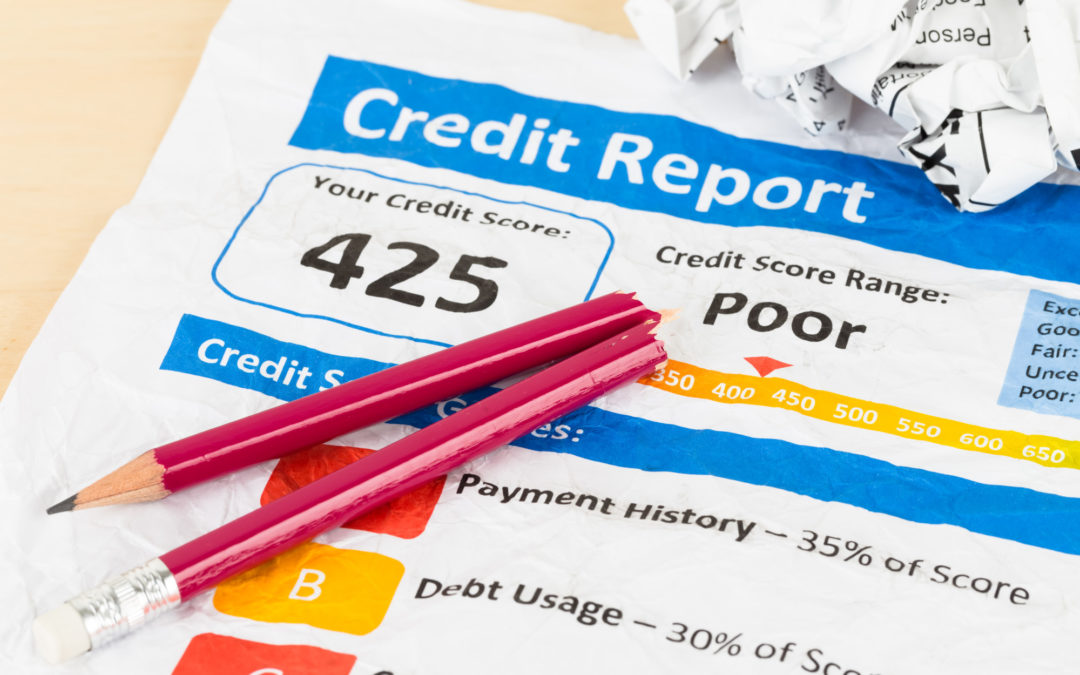Anytime you want to get a loan for a car or home, the lender will look at your credit report and score to determine your risk level. Potential employers may look at your credit score when applying for a job as well.
Your credit score and credit reports are important to your life, but what happens if you have credit score errors? It’s not uncommon for credit reporting agencies to have incorrect information or to not take off credit issues at the allotted expiration time.
This can lead to a lower score than you deserve. We’ll examine what you can do to find out about these errors and have them taken care of for good.
Credit Score Errors Are Common
The three main credit reporting companies are Experion, TransUnion, and Equifax. It’s possible that there is different information in each report, and you can have three different credit scores because of differences in what they report.
A credit report is a history of your credit, both good and bad. It’s a major deciding factor on not only if you qualify for various loans, but also your interest rates. People with lower credit scores pay more interest because they are more of a risk to the lender.
With the billions of people with credit reports and the non-stop payment of bills, loans, and credit cards, it’s not surprising that they make mistakes. The first step to improve your credit score is to get a copy of your credit report from each agency.
You can get them once per year for free or you can pay to have your report sent to you regularly. Some programs notify you when there is a change to your credit score.
Once you have your credit report, go through it with a fine-toothed comb, and determine if there are any errors. It’s important to not only look at what is reported but how long they have been on the report. They are required to remove certain items after a specific time frame, but that doesn’t always happen.
Searching Your Credit Report for Errors
As we said before, each credit report is different. You need to check to make sure all your personal information is correct. If they have the wrong personal information, then it can be difficult for lenders to access your information.
Some information can be correct but confusing. For example, if you have a credit card from a retails store, then it can come up as a bank name instead of the store. This is because the store doesn’t issue the card, but the bank does.
It’s important to not just check on the report, but all three of them. A lender may only look at one reporting agency, so your Equifax score may be lower than your TransUnion score. Don’t just look at one and assume the others are the same.
Common errors found on credit reports include misspellings, duplicate accounts, incorrect accounts, fraudulent accounts, incorrect payment status, outdated information, and incorrect date of delinquency.
You Found an Error, Now What?
If you find an error, then you need to open a dispute with the credit bureau. The Fair Credit Reporting Act state that the bureaus must investigate all claims of errors within 30 days of receiving it. The only objection to this is if they see the issue as frivolous such as someone saying every account is an error, etc.
If the errors are on all three reports, then you’ll need to contact each agency. Having it fixed on one doesn’t mean it gets fixed on the other two. While in dispute, the information in question is ignored when it comes to creating your credit score, so that if it is incorrect, it won’t hurt your credit.
The best way to make sure your dispute is seen by the agency is to send it via certified letter. This way you know exactly when it’s received and the count down to resolution begins. If the agency investigation agrees to the errors, then it’s removed from the report or changed to the corrected issue.
If it’s removed, then you can have a new report sent to anyone who requested the report within six months.
What If the Issues Aren’t Resolved?
It’s not uncommon for the credit bureaus to disagree with you about the error and refuse to remove it from your credit report. There are several options available to you.
You can create a follow-up dispute with the credit reporting agencies. This gets the process started over again. If you know the creditor in question, then you can go to them directly and have them change the information on the credit report.
Contact the Consumer Financial Protection Bureau and submit a complaint against the bureau that denied your dispute.
Your best bet for a resolution is to contact a consumer protection attorney that can use the law to pursue the credit bureaus and have the dispute returned in your favor. There is a cost to working with an attorney, but if the mistakes are serious enough to impact getting a loan or receiving high-interest rates, it’s worth the cost.
For example, if you get a home loan, but the interest is high, then you can spend thousands of dollars extra over the years than someone who received a lower interest rate.
An attorney can look over your case and provide an overview of what they can do for you and begin the legal process of correcting your credit report and credit score.
Correct Your Credit Report Today
Correcting your credit report isn’t a fast process and can take months of disputes and legal wrangling, but they must be accurate. It’s estimated that as much as 25 percent of credit reports have credit score errors that cost people loan opportunities and high-interest rates.
If you’ve had a dispute not come out in your favor and need someone to be on your side, then contact expert witness Joe Chavarria today.


Recent Comments